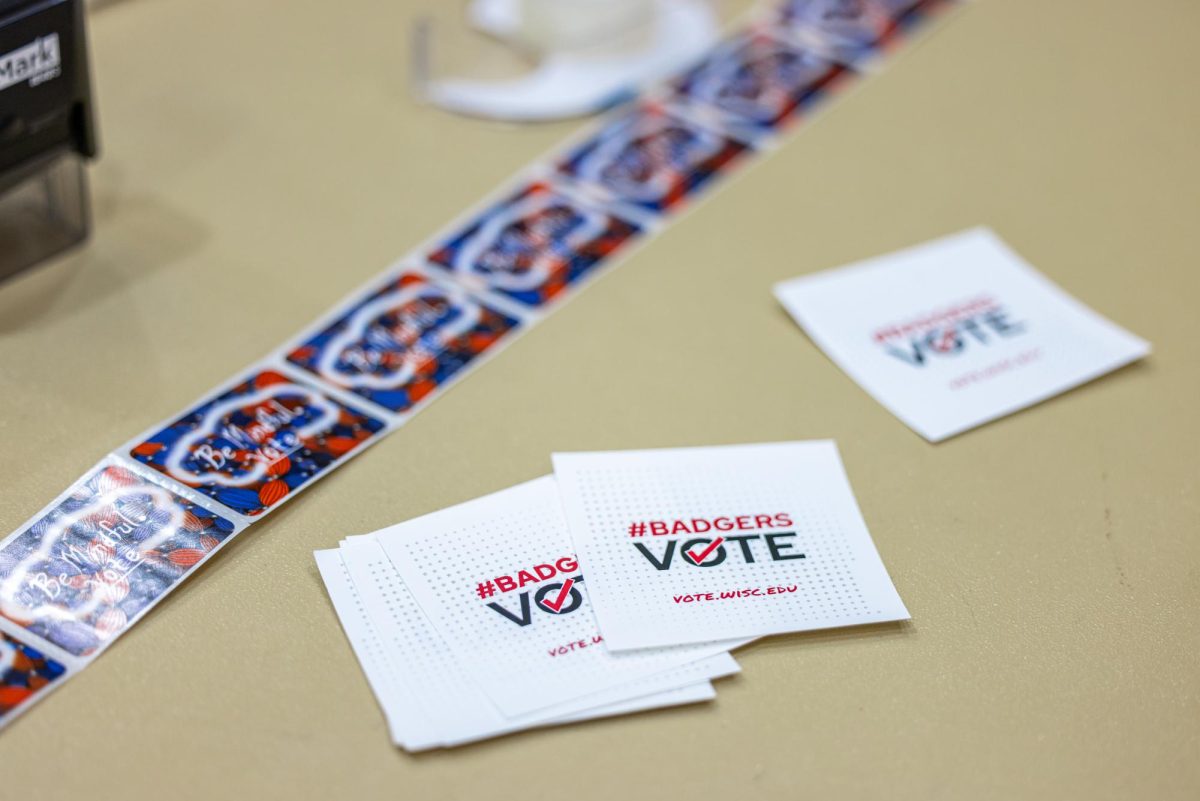Following a 2010 United States Supreme Court decision to consider corporations to be citizens with free speech rights in campaign financing, a corporation plans to run for Congress to test the decision.
In an action of part satire, part initiative, Murray Hill Incorporated, a public relations firm based in Maryland, filed to run as a candidate in the Republican primary last year. Though the state of Maryland rejected Murray Hill Inc. as a candidate in its eighth Congressional District, claiming both the corporation was not “human” and did not meet the age requirement of 30 to run as a candidate, representatives said they plan to continue to attempt to run in future elections.
Spokesperson William Klein and the corporation’s “designated human” representative Eric Hensal discussed their idea and how they implemented it Tuesday at a meeting hosted by the South Central Wisconsin Move to Amend and Liberty Tree Foundation.
Hensal said when the Supreme Court issued its ruling in its Citizens United decision, it triggered an explosion of opposition from non-profits and political groups, which Murray Hill Inc. took as a green light to run for Congress.
“We saw an opportunity to take the debate over campaign finance, corporate power and electoral reform out of the ivory tower of judicial proceedings and into a familiar, easily understandable frame of a political campaign,” Hensal said.
Hensal said if the Supreme Court ruled that corporations have the same right as individuals to donate to political campaigns – a freedom of speech – there is no foundation to argue corporations lack the same right as individuals to actually run for public office.
Murray Hill Inc. presenters said their purpose is to negate the Citizens United decision and encourage voters to go to the ballots April 5 and support the referendum South Central Wisconsin Move to Amend gathered signatures for in order to allow Wisconsinites to respond to the court case.
“This sort of anti-corporate bigotry must stop,” Hensal said sarcastically. “We’re here. We’re corporate. Get used to it!”
The purpose of the company launching an ironic campaign strategy, according to Klein, was to use humor to connect people to an important but uncomfortable issue.
“We saw a story that we felt would not be told well by activists that would take this up,” Klein said. “There would be issues on how it would be communicated because it is boring to most people.”
Klein said Citizens United made the situation more tangible to people, sparking the company to make its statement sound authentic in order to catch media attention.
Hensal said one problem the company is trying to address is the issue of hard-to-find information regarding political files of network stations that broadcast political ads on television.
He said in order for there to be more transparency in campaign financing, the Federal Communications Commission should submit political files on campaign contributors online rather than store hard copies in broadcast offices.
Hensal emphasized the idea behind the campaign is meant to be a short-term solution to interrupt the process of the Citizens United decision to promote fact-checking and better business practice to corporations.
In a further attempt to address the issue, Murray Hill Inc. adopted further satirical political stances, including advocating the death penalty for corporations and being against “same-sex mergers.”


















